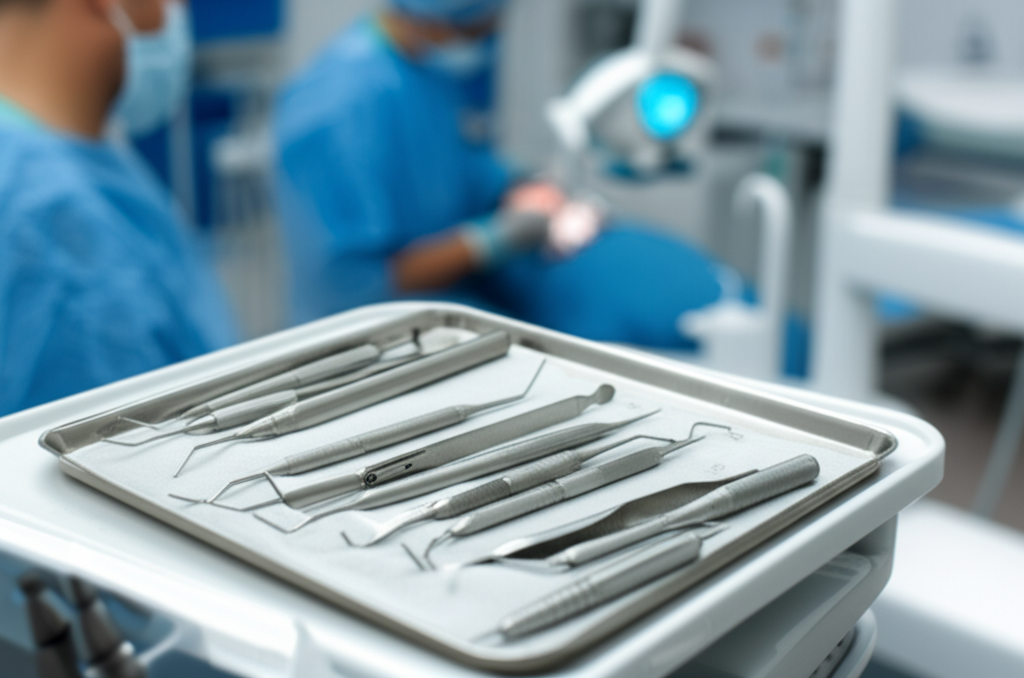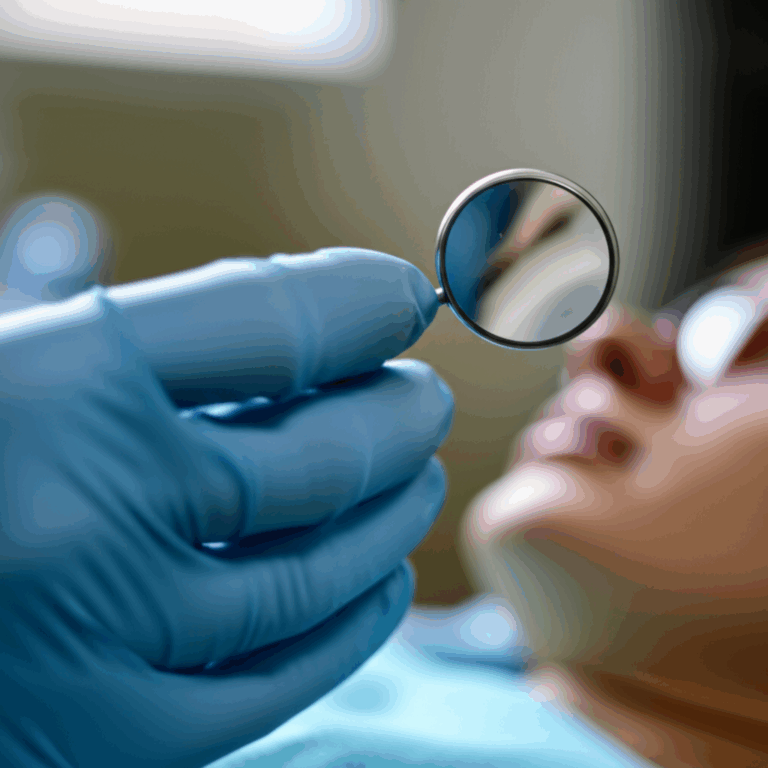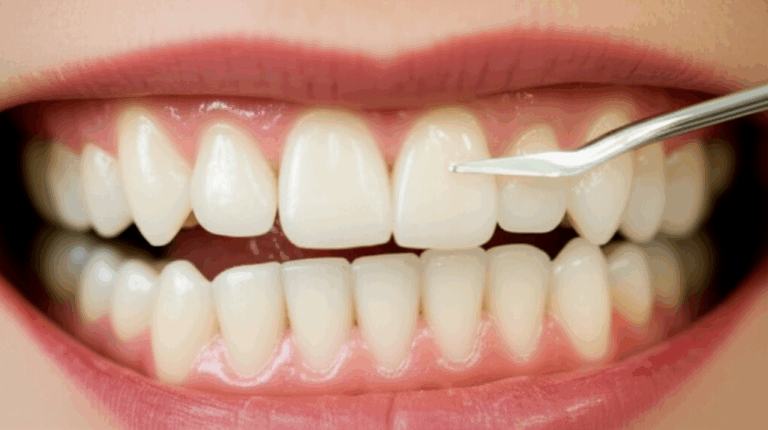
Are Dentists Surgeons? Understanding the Nuances of Dental Specialization
Table of Contents
- Introduction: The direct answer and why this gets confusing fast
- What “surgeon” means in dentistry
- General dentists: The foundation of oral health and minor surgical care
- Oral and Maxillofacial Surgeons (OMFS): The surgical specialists
- Other dental specialists with surgical roles
- Education and training: Dental school, residencies, and how paths diverge
- Anesthesia and safety: Who can do what
- Hospital privileges, referrals, and where surgery happens
- When to see which professional: A simple decision guide
- Common questions I hear about dentists and surgeons
- Risks, recovery, pain management, and anesthesia in plain English
- Costs, insurance, and practical planning
- Final thoughts: Dentists as essential surgeons of the mouth and face
Introduction: The direct answer and why this gets confusing fast
Let me give it to you straight. Are dentists surgeons? Yes in some ways and no in others. Every dentist learns to do some small surgical work inside the mouth. Some dentists go further and train to do bigger, harder surgeries on teeth, jaws, and the face.
That mix makes things confusing for people. The word “surgeon” sounds big and scary. It makes you think of hospital rooms and big cuts. But surgery just means doing something to tissues to fix, take out, or find a problem. Your general dentist does small surgeries all the time. Some specialists, like oral and maxillofacial surgeons, do surgery almost all day.
When I first learned about this, I got lost in all the titles. DDS. DMD. MD. OMFS. It got easier once I looked at who does which jobs and what kind of training they get.
Below I’ll walk you through what I’ve learned after asking lots of questions, reading, and talking to real dentists. I’ll explain who does what, why their training matters, and how you can figure out who you should see if you need dental work or surgery.
What “surgeon” means in dentistry
Surgery in dentistry means anything that cuts or changes tissues in your mouth. Some examples are:
- Simple and surgical tooth removal
- Taking samples (biopsies) from strange spots in the mouth
- Cutting or reshaping gum tissue
- Surgery on the tip of a tooth root (apicoectomy)
- Adding bone or placing dental implants
- Jaw surgery to move the jaws
- Fixing broken facial bones
- Surgery for jaw joint problems or growths
- Fixing cleft lips or palates
Dentists have doctorate degrees. DDS (Doctor of Dental Surgery) and DMD (Doctor of Medicine in Dentistry or Dental Medicine) mean the same basic training. The title just depends on the school. Both mean you’re a dentist with a dental degree and have passed exams.
A surgeon is someone who does operations as a main job. In dentistry, some specialists are true surgeons, like oral and maxillofacial surgeons. Periodontists and endodontists also do surgery, but in certain areas. General dentists often do small surgeries, and some learn to do more after extra training.
Dentists are doctors, but not medical doctors unless they also have an MD. Not every doctor is a surgeon. Not every dentist is a surgical specialist. But every dentist learns some surgery basics in school.
General dentists: The foundation of oral health and minor surgical care
Your general dentist helps keep your mouth healthy and deals with most of your day-to-day dental needs. They focus on:
- Simple tooth pulling, when teeth are easy to take out
- Small biopsies of mouth tissue
- Minor cutting or shaping of the gums for looks or repairs
- Most root canals, but tough cases get sent to a specialist
- Some dental implants, if they have more surgery training
- Cutting and draining small mouth infections
- Uncovering teeth for braces in some cases
Dental school takes four years after college. Students learn about the body, diseases, drugs, x-rays, fixing teeth, and basic oral surgery. They learn to numb you and manage pain. They practice removing teeth and doing small surgeries while supervised.
Most general dentists use local numbing shots. They might also offer laughing gas (nitrous oxide). Some give pills for sedation. A few offer IV sedation, but must have special training and follow state rules.
Can general dentists do surgery? Yes, they do small ones all the time. Do they all do implants? No. Some do after more training; others prefer to send you to a specialist and then put the tooth on later.
Quick real-life example: My neighbor had a wisdom tooth that came in straight and easy—her general dentist took it out. My friend had wisdom teeth stuck in the bone—his dentist sent him to the oral surgeon.
If you’re not sure where you fit, just ask your general dentist. They know your mouth best and can send you to a specialist if you need one.
Oral and Maxillofacial Surgeons (OMFS): The surgical specialists
Oral and maxillofacial surgeons are the main surgeons in dentistry. Their training is long and tough. After dental school, they do a hospital-based surgical residency for four to six years. Some programs give them an MD too. They do rotations in general surgery, anesthesia, and other areas. They help run trauma cases and work with very sick patients.
What do they do? Lots of surgery. Their main jobs are:
- Hard wisdom tooth removal, like ones stuck in bone
- Putting in dental implants, from just one to full rows of teeth
- Adding bone or lifting the sinus for implants
- Moving jaws to fix bites or jaw shapes
- Fixing broken jaws, cheeks, and eye sockets from accidents
- Surgery for jaw joint problems
- Treating cysts, tumors, and other mouth illnesses
- Cleft lip and palate surgery as part of a team
- Rebuilding faces after accidents or cancer
Anesthesia is a big part of what they do. Oral surgeons can numb just your mouth, use laughing gas, give deep IV sedation, or even put you completely to sleep with general anesthesia in their office, if they have the right gear. For big cases, they use hospitals and work with full anesthesia teams.
They often have hospital rights to take care of emergencies and bigger operations. They team up with ear, nose, and throat doctors, plastic surgeons, and brain surgeons for head and neck cases that are complicated.
Are oral surgeons doctors? Yes. They are dentists with special surgery training. Some also have an MD, but that’s not required. Their main training is the OMFS residency and passing the board test.
Other dental specialists with surgical roles
Other dental specialists do surgeries too, but just in their areas.
- Periodontists. They work on your gums and the bone around your teeth and implants. They do gum grafting, cut and reshape bone, crown lengthening, soft tissue work, and lots of implants. When someone asks “Are periodontists surgeons?” the real answer is yes, but just for gums and bone.
- Endodontists. They work on the inside of the tooth (the pulp and root). Mostly, they do root canals, but sometimes they do root-end surgeries (apicoectomies). So, they’re surgeons for the tooth roots.
- Prosthodontists. They focus on replacing and fixing teeth. They plan big reconstructions, dentures, and repairs after jaw surgery or cancer. Most don’t place implants themselves, but work as a team with oral surgeons or periodontists.
- Orthodontists. They move teeth for straightening, not surgery. But they often work with oral surgeons when the jaws need to be moved by surgery.
If you think you need gum surgery or implants, ask if a periodontist or oral surgeon is better for your case. For stubborn root problems, your dentist might send you to an endodontist.
Education and training: Dental school, residencies, and how paths diverge
Follow the schooling, and it gets clearer.
- General dentist: Four years college, four years dental school. You get a DDS or DMD. You can do general dentistry. Some keep learning with a one-year residency.
- Oral and maxillofacial surgeon: Four years college, four years dental school, then four to six years of surgical residency. Some get an MD, some don’t. All get serious surgery and anesthesia skills. They can be board certified.
- Periodontist or endodontist: Four years college, four years dental school, then two to three years of specialty residency. They can also be board certified.
- Medical surgeon (not dental): Four years college, four years medical school, then five to seven or more years in surgery residency.
Do dentists go to medical school? General dentists don’t. Some oral surgeon programs add an MD, but it isn’t required.
DDS vs DMD: Same training, just different titles. The school picks which one you get.
Dental boards and medical boards each control their fields. Your ability to do a certain job comes from your training, state laws, and your license. This system keeps patients safe, making sure the dentist or surgeon knows what they’re doing.
Anesthesia and safety: Who can do what
People worry most about getting numbed or put to sleep. Here’s who can do what:
- Local anesthesia (numbing shots): All dentists can do this.
- Laughing gas (nitrous oxide): Many dental offices use this. It helps you feel relaxed.
- Pills for sedation: Some general dentists and many specialists give pills to calm you down. Rules are different in every state.
- IV sedation (medicine in the vein): Oral surgeons do this a lot. Some periodontists and a few general dentists do too if they are trained.
- General anesthesia (put to sleep): This is mostly for oral surgeons. They learn it in residency and use it for bigger cases. For the most serious cases, it happens in a hospital with an anesthesia team.
Safety comes from having the right person do the right job in the right place. Ask what kind of sedation you’ll get, who gives it, how you’ll be watched, and how they deal with problems. Good offices want you to ask.
Hospital privileges, referrals, and where surgery happens
Most dental surgeries are done in the dental office. Simple extractions, small biopsies, some implants, and gum surgery don’t need a hospital.
Oral surgeons often work in hospitals too. They go there for bad injuries, big jaw surgeries, really sick patients, or when you need to be put fully to sleep with a hospital team.
Referrals make things work smoothly. Your general dentist is your main coach. They’ll send you to a surgeon or other specialist if it’s needed. The specialists also send patients to each other. Working together is the best way.
Dental teams also count on labs. You might not ever meet these technicians, but they make your crowns, bridges, and implants look and work right. For big implant cases, it’s important that the dentists work with a skilled implant dental laboratory or a trusted crown and bridge lab. These days, many teams use digital dental labs for 3D planning and precision.
When to see which professional: A simple decision guide
Here’s a quick way to figure out where to go:
- Start with your general dentist if you have:
- Tooth pain, cavities, and most root canals
- Easy tooth removal
- Usual checkups
- Small gum trims
- Getting checked for night-time biting
- First looks at wisdom teeth or implants
- Ask for an OMFS (oral surgeon) if:
- Wisdom teeth are stuck or close to nerves/sinuses
- You need your jaw moved to fix your bite or help breathing
- Your face has been hurt or broken
- You need extra bone for implants
- You want or need IV or full anesthesia
- You have major health problems that make surgery risky
- Ask for a periodontist if:
- Your gums bleed, pull back, or seem unhealthy
- You need gum or bone work
- You want implants but have gum or bone problems
- Ask for an endodontist if:
- You have pain after a root canal
- You need a root-end surgery
- Your tooth roots are very tricky or infected again
- Ask for a prosthodontist if:
- You need lots of teeth fixed or replaced
- You need special dentures or bridges
- You’ve had cancer treatment or bite problems that need full fixing
If it feels overwhelming, start with your general dentist. They help people decide every day and know good specialists nearby.
Common questions I hear about dentists and surgeons
- Are dental surgeons doctors? Yes. Dentists have doctorate degrees, and dental surgical specialists are doctors who do surgery on the mouth and face.
- Is an oral surgeon a doctor? Yes. Oral surgeons are dentists who finished surgical training. Some also have an MD.
- Do dentists go to medical school? No, not general dentists. Some oral surgeons do if their program gives them an MD.
- Are all doctors surgeons? No. Doctor is just a title; surgery is another skill.
- Can a general dentist take out wisdom teeth? Yes, if it’s an easy case. Tough ones go to an oral surgeon.
- Who does root canals? Most are done by general dentists. Hard ones or surgeries are sent to endodontists.
- Who does gum surgery? Periodontists do most gum surgeries. Dentists do small gum work.
- Who moves jaws for surgery? Oral surgeons, working with orthodontists.
- Can dentists give medicine? Yes. Dentists can give meds for dental problems, pain, infections, and sometimes calming you down.
- Are orthodontists surgeons? No. They straighten teeth. Jaw surgery is done by oral surgeons.
Risks, recovery, pain management, and anesthesia in plain English
All surgeries have risk, and dental surgery is no different. Here’s what could happen, in simple words:
- Common risks: Some bleeding, swollen face, pain, bruising, numbness, dry socket after tooth removal, infection (not common), hurting from stitches.
- Specific risks: Damaged nerves with wisdom teeth out, sinus problems if upper teeth or sinus lifts, jaw joint pain after long surgeries, implants might not join to bone.
- Anesthesia risks: Feeling sick, dizzy, or allergic. Serious stuff is rare, but screening and good monitoring are a must.
- Pain control: Most people can start with anti-inflammatory drugs. Add Tylenol. Use stronger meds only if really needed for a short time. Use cold packs first couple of days.
- Healing time: Simple extractions heal in 1-2 weeks. Wisdom teeth take longer. Implants need months for bone to take. Jaw surgery can take much longer and you have to be careful with what you eat at first.
- Aftercare: Follow instructions like a recipe. Keep things clean. Don’t smoke—it slows healing. Call if anything feels wrong. Really, call. Don’t just search the internet at night.
- Your health: Having good blood sugar, eating enough, and sleeping right all help you recover. Tell your dentist or surgeon about all your medicines and medical history.
If you’re getting a dental implant, ask how long the whole process takes. You want a step-by-step plan—bone grafting, healing, placing the implant, and getting the final tooth.
Costs, insurance, and practical planning
Money and insurance can be tough. Dental insurance usually covers things like pulling teeth and some gum work. Medical insurance sometimes covers surgery after accidents or jaw surgeries. Have your dental office send a pre-approval—they can’t promise insurance will pay, but it helps you plan.
Sedation can affect the bill. IV sedation in an office can be cheaper than full general anesthesia in a hospital. Hospitals cost more because of fees and needing an anesthesia doctor there. Big cases sometimes get split into steps to make costs easier.
The lab matters too. Good crowns, bridges, and implants depend on a good lab. Many dentists use labs that are experts in things like ceramics or fancy bridges. Ask your dentist who their lab is and why they use them. If a dentist is proud to talk about their lab, it’s a good sign.
Final thoughts: Dentists as essential surgeons of the mouth and face
Here’s what I learned after a lot of thinking and talking to dentists. Dentistry is a wide field. Every dentist learns to do some small surgery. Some go further and become full surgeons. Oral and maxillofacial surgeons are at the far end of that, and periodontists and endodontists are skilled surgeons for gum and tooth problems. Prosthodontists and orthodontists plan, fix, or straighten teeth but don’t really do surgery.
You don’t have to remember every job title. Just find the right expert for what you need. Start with your regular dentist. Ask plain questions like: What’s wrong? What are my choices? Who should do this and why? How long to get better? How do we stay safe with pain and numbing? What if something goes wrong?
One last thing—great results come from teams, not just one person. If you’re getting implants or big repairs, I like seeing dentists who team up with a good implant dental laboratory, a strong crown and bridge lab, and a smart digital dental lab. Good teamwork means better planning, better parts, and a tooth or smile that feels like it belongs to you.
Dentists are doctors. Some are surgeons, some are not. All of them want you to stay healthy, comfortable, and well taken care of. When you know who does what, you can feel good about who you pick and worry less before your procedure.








